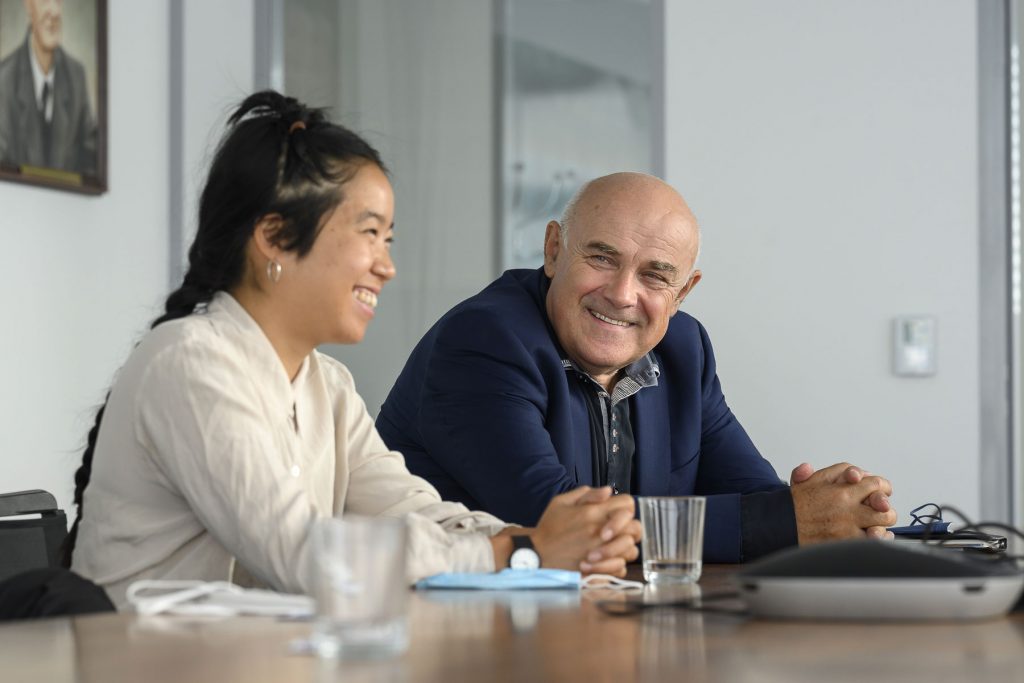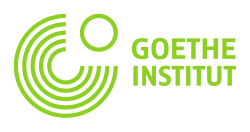The Czech-German RICAIP Research Centre at the Czech Institute of Informatics, Robotics, and Cybernetics (CIIRC) of the Czech Technical University in Prague will welcome young European artists in the coming days and weeks, who will focus on learning about artificial intelligence and machine learning as part of the Goethe-Institut’s residency program. The purpose of the residency program, which will bring remarkable artistic talents from France and the UK to the Czech capital in the autumn, is to mediate ties between scientists and European artists and inspire them to (co)creative work.

“Art residencies will allow young artists from the field of fine arts to get acquainted within a four-week stay with the activities of leading scientific institutions in Europe. The aim is to transfer knowledge and establish close cooperation between scientists, researchers, and artists, which we believe is a very fruitful process.”
Luisa Rath, program manager of the Goethe-Institut in the Czech Republic
The residency program of European artists at the RICAIP research centre is mediated by the Czech branch of the Goethe-Institut, as part of the pan-European Generation A = Algorithm project. It is a pan-European project of the German Goethe-Institut, which sends a total of fifteen carefully selected scholarship holders to thirteen prestigious European scientific and research institutions.
“It is remarkable that just a few days after our institute was visited by German Federal President Frank-Walter Steinmeier, we will host a visit with such a different focus in our Testbed for Industry 4.0. We really appreciate the cooperation with the Goethe-Institut, thanks to our participation in this program we will have a total of three artists here. I believe that it will be inspiring both for them and our scientists.”
prof. Vladimíř Mařík, scientific director of CIIRC CTU
“Today, we welcomed the first two scholarship holders to look behind the scenes at the research in the coming weeks. They are the French visual artists Douna Lim and her colleague, who will focus mainly on the influence of algorithms on current film production. For example, scenarios influenced by artificial intelligence will be created, and they will also focus on how computer algorithms approach film editing,”
Tilman Becker, director of RICAIP
In the autumn, the UK artist Lily McCraith will visit the RICAIP centre, who is mainly interested in the technical methods of creating images and text and how these methods affect our view of the world.
Like RICAIP and CIIRC CTU in Prague’s Dejvice, twelve other professional workplaces throughout Europe are opening their doors to artists. The works of art, ideas, thoughts that will arise during these internships will be an artistic bridge, a catalyst between scientists and the public. They will offer new perspectives on the challenging topic of artificial intelligence and open up space for further discussions on the topic, which will step out of the scientific shadow towards the general public.
Generation A: Algorithm. Artistic internships at the RICAIP research centre
Autumn 2021
More information: www.goethe.de/generationA
Contact in Goethe-Institut
Tomáš Moravec
721 434 624
tomas.moravec@goethe.de, www.goethe.de/english

RICAIP – Research and Innovation Centre on Advanced Industrial Production
A newly-established international distributed research centre of excellence (CoE) based on a strategic partnership of four major Czech and German research institutions. The founding partners are CIIRC CTU, CEITEC BUT, DFKI (Deutsches Forschungzentrum für Künstliche Intelligenz) and ZeMA (Zentrum für Mechatronik und Automatisierungstechnik), with its seat in Saarbrücken.
RICAIP focuses on research in artificial intelligence (AI), machine learning, and robotics for advanced industrial production. It develops new production concepts for geographically distributed production and production as a service. The centre will connect the testbeds in Prague, Brno, and Saarbrücken and will enable quick adaptation of production according to the current needs of the customer or available means of production.
RICAIP was prepared in two phases within EU Horizon 2020 calls under the title WIDESPREAD Teaming, and in the second phase, it was evaluated in 2019 as the 2nd best project. The overall funding received for the period from 09 / 2019 to 12 / 2026 amounts to EUR 48.25 million. RICAIP is currently one of the EU’s largest running projects in the field of AI and Industry 4.0. RICAIP also provides support for small and medium-sized enterprises and facilitates the transfer of technology and knowledge from academia to industry. www.ricaip.eu

The Goethe-Institut is the Federal Republic of Germany’s cultural institute, active worldwide. The institute promotes the study of German abroad and encourages international cultural exchange. Goethe-Institut sets internationally recognised standards in the teaching and learning of German as a foreign language. It runs language courses, compiles teaching materials, trains teachers, contributes to scientific research and participates in politicolanguage initiatives.
Goethe-Institut monitors trends in Germany and encourages cultural collaboration across the globe by organising programmes of events and making contributions to various festivals and exhibitions in the fields of film, dance, music, theatre, literature and translation. Libraries and information centres, forums for discussion, diverse print-, audio- and video-publications and our visitors’ service aim to paint a contemporary portrait of Germany, promoting international discourse on the key concerns of what is becoming an increasingly global society. www.goethe.de/english

CIIRC CTU – Czech Institute of Informatics, Robotics and Cybernetics
A modern scientific and research institute of the Czech Technical University in Prague (CTU), which brings together excellent research teams, young talents and unique know-how to push technological boundaries and build on the best of Czech tradition in technical education. The focus of CIIRC CTU’s research work focuses on four basic pillars: industry, energy, smart cities and a healthy society, in both basic and applied research. CIIRC CTU was founded in 2013 and started its full operation in a newly-built facility in 2017.
The Institute currently has more than 260 employees working in 8 research departments complemented by the Center and Testbed units for Industry 4.0. It aims to concentrate excellent research in the fields of robotics, intelligent, distributed and complex systems, automatic control, computer-aided manufacturing, bioinformatics, biomedicine and assistive technologies. CIIRC CTU supports horizontal collaboration among all parts of CTU and opens the space for mutually beneficial cooperation with other universities, with the Academy of Sciences of the Czech Republic, with industrial companies and with international institutions. CIIRC CTU creates a unique ecosystem of academic-industrial cooperation in which it uses diversified forms of project financing from national, European and private sources. More information at www.ciirc.cvut.cz.
